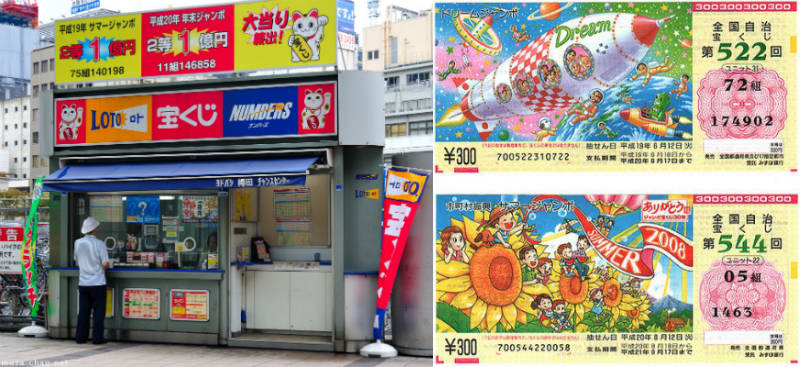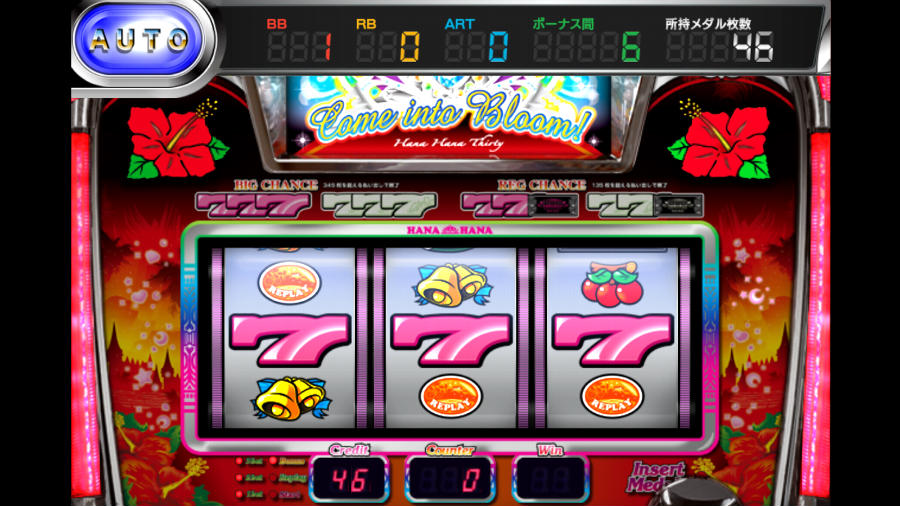Gambling Law in Japan

A typical urban Takarakuji booth and tickets
Understanding Gambling Law & Legislation in Japan
Gambling law is a bit of a strange beast in Japan. Under Chapter XXIII of Japan's Criminal Code, gambling is generally placed under a widespread ban, with hefty fines and even imprisonment for people that fall foul of the law. There are exceptions to this, for a number of reasons and in a number of areas. These include the prefectural and city-wide takarakuji (lotteries), public sports betting and, of course, pachinko - a slot machine/ pinball machine hybrid which can be seen in pachinko parlours up and down the country. As a result of all this, understanding Japan's gambling law and legislation can be a little confusing at times.
Japanese lottery
The lottery in Japan is a fairly popular thing, and office-based lottery pools are not uncommon. Lotteries, whether in the form of a prefectural lottery played at the ATM, or scratch cards you can pick up at your local kombini (convenience store), fall under the takarakuji law. This law stipulates that only the nation's 47 prefectures and 12 specially designated cities can hold a takarakuji, and that at least 50% of the prize pool of any given lottery must go to the local government and charities. This boost to the local government's income is the main reason why takarakuji exists within its own set of laws - but beware if you're an expat playing the lottery in Japan. Your home country may stake a claim to your winnings as taxable income. Check the law in your home country before you buy a ticket!

The Japan Derby is one of the major races in Japan's keiba season.
Sports betting
Sports betting in Japan is an entirely different kettle of fish. Online bookies in Japan are prohibited under the Criminal Code, though there are exceptions in the form of foreign bookies who operate legally, offering Japanese language options and paying out in JPY, if requested to do so. If you're looking to bet online in Japan, these sites are the best way to go - just make sure you check which sites offer Japanese language and currency support.
Domestic sports betting is once again subject to a different set of rules - soccer, keiba (horse racing), powerboat racing, motorcycle racing and keirin can be wagered on in a pari-mutuel style. How these are entered into depends on the sport, and can range from sales at the ATM to picking up your tickets at your local kombini.
Casino
Casino gambling in Japan is an interesting subject at the moment. The LDP have been moving towards legalising and opening casinos for some time, with the aim of boosting tourism and the economy in the process. However, in the wake of a string of illegal betting scandals in recent years, and arguments from the opposition, the movement hasn't gotten particularly far. Since casino gambling is still illegal in Japan, the vast majority of people who want to put a little money on the line wind up at one of the many pachinko parlours dotting the country.
Pachinko
There are two types of people in this world - people who understand pachinko and people who try their hardest to drown out the sound as someone walks past a pachinko parlour, causing the automatic doors to open. Pachinko is a uniquely Japanese hybrid of a slot machine, a pinball machine and whichever videogame suits your fancy at the time. You start by feeding money in, like with a slot machine, to unlock a series of small metal balls. These balls are then fired in, pinball style, and controlled using pneumatic air jets instead of flippers. When you get a ball in the right hole, you'll often fire off a slot machine which will then fire off a minigame. Since gambling for cash is illegal, you're paid out in balls. The balls can then be traded for keihin (prizes) such as chocolates, pens and videogames, or tokushu keihin (special prizes) which can often be sold for cash in a separate building near the parlour. By receiving the cash outside the pachinko parlour, the gambling law remains intact.

Pachislot is pachinko's little brother and looks similar to regular slots
Believe it or not, pachinko is not considered a form of gambling in Japan as a result of this, along with a number of historical, cultural and monetary reasons. With annual sales figures of JPY18.8 trillion (USD169.3 billion), it's easy to see how big an industry this is. If you're looking to try your hand at Pachinko, it's well worth going with a friend who can guide you through the fast-paced action. It's also advisable that you bring ear plugs - pachinko is not a quiet game!
While pachinko has been around for decades, a new kid arrived on the block more recently - pachislot. This variation combines pachinko with elements of slot machines and the latest IT bells and whistles.
Related content
